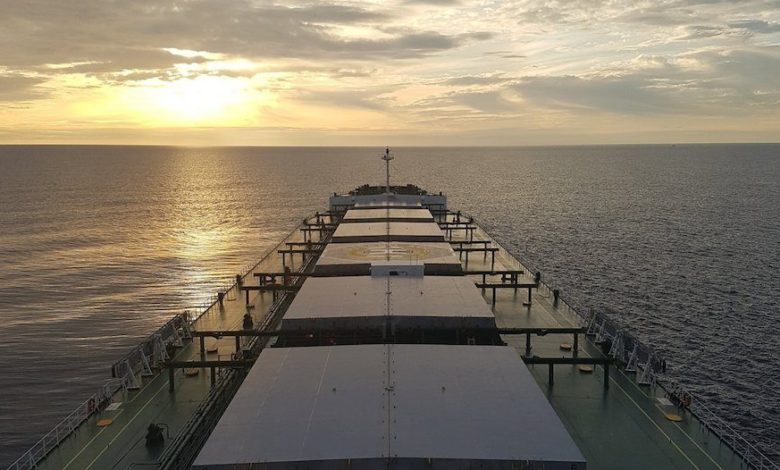Banks show the carbon footprint of the ships they finance

In a first-of-a-kind climate finance report, 15 signatories of the Poseidon Principles have disclosed the climate alignment score of their ship finance portfolios. The Poseidon Principles Annual Disclosure Report 2020 shows that just ING, Export Credit Norway, and BPIFrance Assurance Export’s ship finance portfolios are aligned with UN decarbonisation targets while 12 banks’ portfolios fail to make the cut.
The banking industry’s transparency on their shipping portfolio’s carbon footprint follows hot on the heels of the Sea Cargo Charter, a groundbreaking agreement among many of the world’s largest charterers who have vowed to show the emissions output of the vessels they charter.
Announced in June 2019, the Poseidon Principles became the first sector-specific climate alignment agreement for financial institutions.
The Poseidon Principles establish a global framework to quantitatively assess and disclose whether financial institutions’ lending portfolios are in line with climate goals set by the International Maritime Organization (IMO). The IMO’s initial GHG strategy prescribes that international shipping must reduce its total annual greenhouse gas emissions by at least 50% of 2008 levels by 2050, whilst pursuing zero emissions as soon as possible in this century.
This first climate assessment reporting provides signatory financial institutions with a unique understanding of our ship finance portfolios’ climate footprint
“This report marks a significant milestone for global ship finance and for climate finance reporting as a whole. I commend my fellow signatories for their pioneering efforts to be transparent and accountable for their role in promoting responsible environmental behaviour. I encourage other serious banks and export credit agencies to join us in supporting global seaborne trade in a sustainable manner,” said Michael Parker, chairman, global shipping, logistics and offshore at Citi, and chair of the Poseidon Principles Association.
The report includes commentary from financial institutions on key takeaways from their climate assessment, and reflections on how it will inform their business activities and decision-making in the future with many banks stressing the data compiled on poor performing ships would lead to conversations between lenders and owners about how to improve the environmental performance of laggard vessels.
To assess the climate alignment of a single vessel via the Poseidon Principles, the vessel’s annual carbon intensity is compared with the decarbonisation trajectory for its respective ship type and size.
“An alignment delta for an individual vessel will initiate a discussion with the vessel owner, with the ambition to agree on corrective measures that would reduce the alignment delta,” a spokesperson for Sparebanken Vest commented.
“This first climate assessment reporting provides signatory financial institutions with a unique understanding of our ship finance portfolios’ climate footprint. All industry participants must collectively rise to the climate challenge. Banks under the Poseidon Principles will continue to work proactively with their clients and other important stakeholders to shape a better future for international shipping and society,” commented Paul Taylor, global head of shipping and offshore at Societe Generale, and vice chair of the Poseidon Principles Association.
A total of 20 financial institutions have joined the Poseidon Principles. Together, they represent over $150bn in loans to international shipping – more than a third of the global shipping finance portfolio.

If banks are interested in Poseidon Principles, is because that “principles” are probably false.